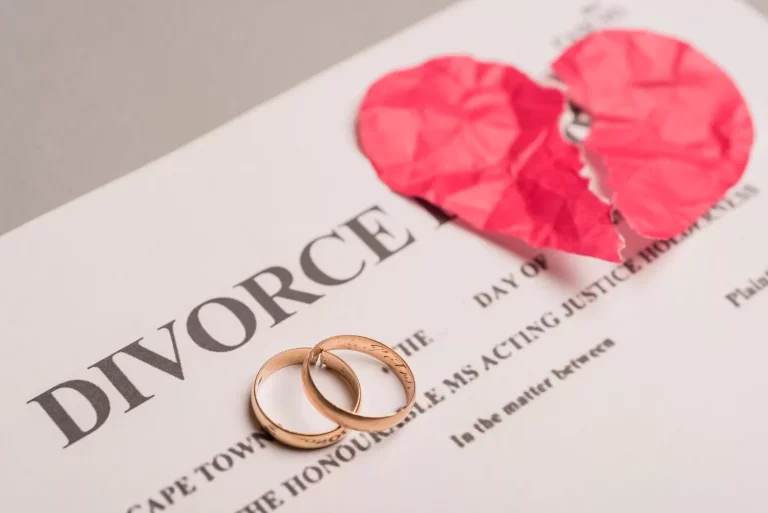When is Divorce Mediation Not Recommended
Have you ever wondered when divorce mediation is not the best option? At TheBostonDivorceLawyer, we have the answers. Find out when mediation may not be recommended for your divorce case.
On the authority of the American Bar Association, divorce mediation is not recommended in cases involving domestic violence, substance abuse, or severe power imbalances between the parties.
No mutual agreement
To be fair, when both parties can’t agree on their divorce terms, mediation might not work. For mediation to succeed, both people need to be ready to negotiate and compromise.
If one person isn’t willing to join in or cooperate, mediation becomes hard and might not help much. Without full participation from both sides, it’s tough to resolve disputes and come to an agreement.
Also, if there’s no agreement, deep emotional issues or conflicts can block good communication. Basically, this can lead to arguments and make it hard to decide things calmly and rationally.
If one person tries to gain an unfair advantage or isn’t honest about their finances, mediation isn’t the best choice. Honesty and openness are needed to reach a fair settlement.
High conflict
Sometimes, mediation might not be the best option, especially in high conflict divorces.
In high conflict divorces, intense emotions and hostility can make it hard for the parties to communicate and compromise. This can hinder productive mediation because the parties might not be willing or able to interact respectfully and constructively.
High conflict in divorces can stem from ongoing disputes over finances, infidelity, domestic abuse, or child custody disagreements. These issues can quickly escalate tensions, making mediation more difficult.
Frankly, in these situations, the emotional strain can make it hard for the parties to focus on reaching agreements, potentially dragging out the mediation process. There might also be power imbalances or safety concerns, complicating negotiations further.
For high conflict cases, other dispute resolution methods like litigation or collaborative divorce might be more suitable. These methods offer a more formal and structured approach, which can better handle the various problems that may occur involved in high conflict divorces.
Misconduct
To be fair, misconduct during divorce mediation can make the process less effective. Misconduct includes behaviors like abuse, lying, or manipulation, which harm the trust and communication needed for successful mediation. If one or both parties show such behavior, it can create fear, hostility, or an imbalance of power, making open and productive discussion difficult.
For instance, if there’s a history of abuse or ongoing dishonesty, mediation might not be safe or effective. Basically, in cases where one party hides financial information or assets, mediation is not likely the right method to resolve these issues.
Additionally, complex legal matters like child custody or property disputes can get worse if there’s misconduct, making it hard to find a fair solution.
Complex legal issues
There are times when mediation might not be the best choice.
One example is when the divorce involves tricky legal matters. This could include high-value assets, complicated finances, or disputes over child custody and support. Mediation might not handle these complex issues well enough.
Also, if there has been domestic violence or abuse in the relationship, mediation might not be safe or suitable. Keeping everyone safe is most important, and in such cases, going to court might be necessary.
Honestly, moreover, if one or both spouses are unwilling to share financial information or cooperate during mediation, it won’t work. Honesty and openness are very important for mediation to succeed, and without these, a fair agreement might not be possible.
In short, if there are complex legal issues, a history of abuse, or a lack of cooperation, mediation may not be the best option for a divorce. It’s important to think about all these factors and get legal advice to find the best way to proceed with the divorce.
Unwillingness to cooperate
Keeping it real, when one or both parties aren’t willing to work together, it can show up in different ways. They might refuse to talk properly, be stubborn about what they want, or just not want to compromise.
Without cooperation, mediation can turn into a fight and get nothing done. This can lead to more arguments and make the relationship even worse. It also makes it hard to agree on important things like child custody, dividing assets, and spousal support.
If one or both sides aren’t being honest and open during mediation, it can stop progress and hurt the process. All kidding aside, without good communication and a desire to work together, mediation might not go anywhere.
In cases where there’s a big power difference between the spouses, mediation might not be the best idea. If one person is being forced or pressured into agreeing to something they don’t like, it won’t lead to a fair outcome.

Summing it All Up
Highlighting what was noted before, in cases where there is a history of domestic violence, one party is unwilling to negotiate in good faith, or there are complex financial issues, divorce mediation may not be recommended.
What TheBostonDivorceLawyers is recommending to secure is, it is important to prioritize safety and fairness in any divorce process, and in such situations, alternative methods of resolution may be more appropriate.







